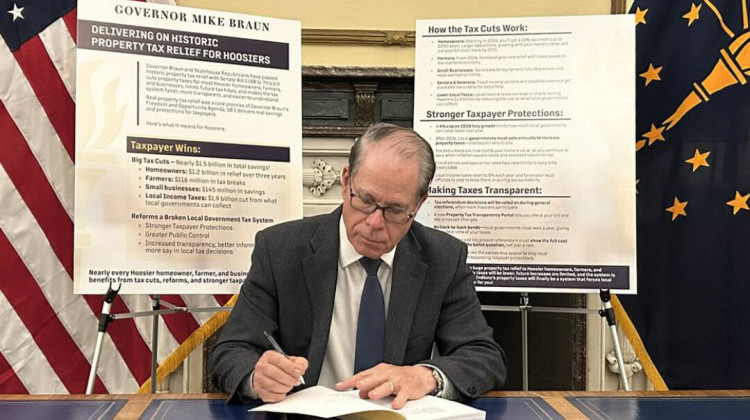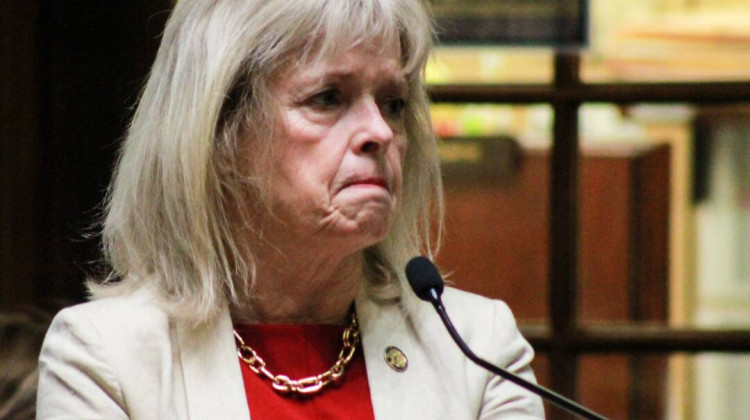
The bill doesn’t affect eligibility or the application process for non-elderly, non-disabled Hoosiers or base benefit amounts.
Lauren Chapman/IPB NewsGetting access to the Supplemental Nutrition Assistance Program (SNAP), also known as "food stamps," may be easier for older and Hoosiers with disabilities under a new law going into effect July 1.
For many who are elderly or have a disability, experts and advocates say complex SNAP application and reapplication requirements can be a barrier to receiving these often small, but critical benefits. It's especially hard for those without transportation or broadband, advocates say.
Gov. Eric Holcomb signed Senate Bill 334 last week. The new law will create an alternative, simplified SNAP application for those groups and reduce application requirements to every three years rather than every two.
That two year reapplication requirement was already longer than the annual requirements for non-elderly, non-disabled beneficiaries, which are not affected by this new law. Seniors and people with disabilities on SNAP would still have to report their income to the state annually or whenever their income changes.
Lawmakers hope the change will prevent people from falling off the program and into food insecurity.
READ MORE: Indiana food banks welcome federal SNAP benefit boost, but say it's not enough
Join the conversation and sign up for the Indiana Two-Way. Text "Indiana" to 73224. Your comments and questions in response to our weekly text help us find the answers you need on statewide issues throughout the legislative session. And follow along with our bill tracker.
The bill’s author, Sen. Shelli Yoder (D-Bloomington), emphasized the bill doesn’t affect eligibility or the application process for non-elderly, non-disabled Hoosiers.
“This just eases the application process for a vulnerable population. And it's a program that is covered 100 percent with federal dollars and perhaps will even be a cost savings in the administration of the program at the state level,” Yoder said. “Food secure individuals with disabilities and seniors are healthier Hoosiers, physically and mentally”
According to the latest available federal data from 2020, only 33 percent of Indiana's SNAP households included someone who is elderly or has a disability. And the average monthly SNAP benefit for such families was less than $200 a month while households with children averaged about double that. The bill also doesn’t change benefit amounts.
And SB 344 includes a provision requiring Indiana’s Family and Social Services Administration to provide information on how to apply for SNAP to anyone on Medicaid. FSSA already does that, Yoder said, this provision in the bill is just intended to codify that practice in state law.
Overall, the new law doesn’t directly change much for most applicants. But advocates say it may free up resources that will allow social service organizations and the state to better serve all applicants.
Indiana’s percent of food-insecure households declined in 2019-2021 compared to previous three-year averages in USDA data. Many states saw similar declines.
That decline is reflected in the share of marginal food insecurity among the state’s elderly residents. According to estimates from Feeding America, 9.8 percent of older Hoosiers were marginally insecure in 2020, down from 12.7 percent in 2019.
Adam is our labor and employment reporter. Contact him at arayes@wvpe.org or follow him on Twitter at @arayesIPB.
9(MDAyMzk1MzA4MDE2MjY3OTY1MjM5ZDJjYQ000))
 DONATE
DONATE






 Support WFYI. We can't do it without you.
Support WFYI. We can't do it without you.